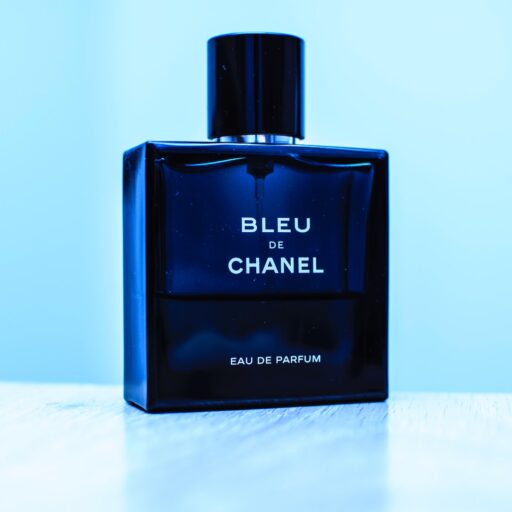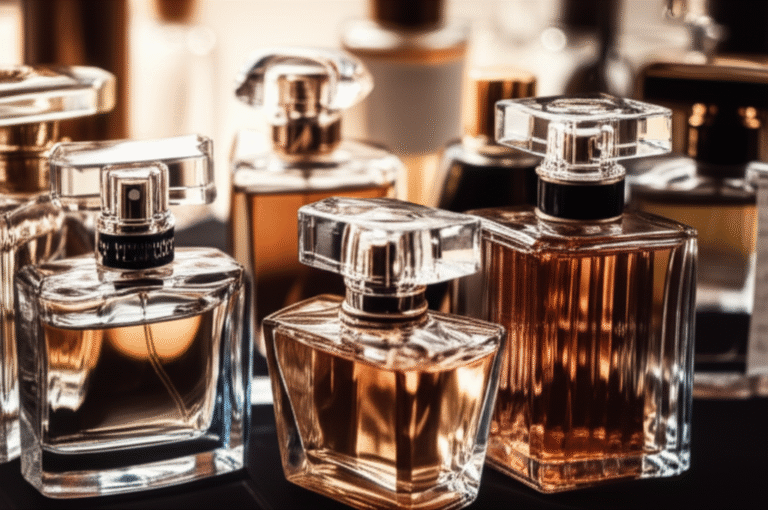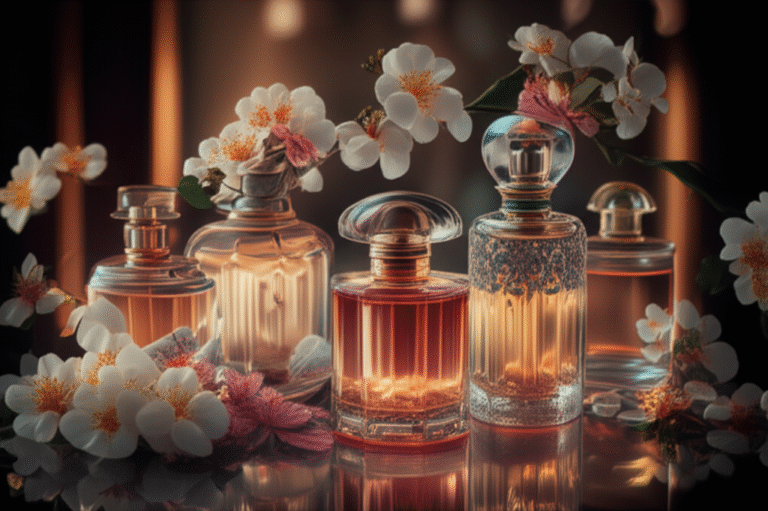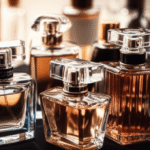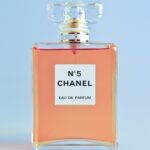Support our educational content for free when you purchase through links on our site. Learn more
What Are Perfume Shops Called? 10 Names You Didn’t Know! 🌸 (2025)

Ever wandered into a fragrant wonderland and wondered, “What exactly do you call this magical place?” Is it a parfumerie, a fragrance boutique, or maybe a scent bar? You’re not alone! The world of perfume shops is as rich and varied as the scents they sell. From the elegant halls of Creed’s flagship boutiques to the bustling counters of department stores, each type of perfume shop has its own unique name and vibe.
In this article, we’ll unveil 10 different names for perfume shops, explore their histories, and guide you through the scented sanctuaries where your next signature fragrance awaits. Plus, we’ll share insider tips on how to navigate these shops like a pro and reveal the future trends shaping fragrance retail. Ready to sniff out the secrets? Let’s dive in!
Key Takeaways
- Perfume shops go by many names: including parfumeries, fragrance boutiques, scent bars, and more.
- Different types of shops offer distinct experiences: from luxury boutiques to online retailers and duty-free stores.
- Knowing the terminology helps you shop smarter and find the perfect scent with confidence.
- Niche perfumeries and indie brands are reshaping the fragrance landscape, offering unique and artisanal options.
- Combining in-store visits with online shopping gives you the best of both worlds—sensory exploration and convenience.
Ready to explore your next favorite perfume?
- 👉 Shop luxury fragrances like Creed: Amazon | Creed Official Website
- Discover niche brands like Le Labo: Amazon | Le Labo Official Website
- Browse popular department store counters: Sephora | Nordstrom
Dive deeper into the fragrant world with our full guide and become a scent-savvy shopper today!
Table of Contents
- ⚡️ Quick Tips and Facts
- 📜 The Scented Story: A Whiff of History in Perfume Retail Spaces
- 🕵️♀️ Unveiling the Mystery: What Are Perfume Shops Called?
- 🛍️ A World of Scented Sanctuaries: Exploring Different Types of Perfume Retailers
- 💖 The Art of Scented Shopping: Why We Love Visiting Perfume Stores
- 👃 Your Personal Scent Journey: Tips for Navigating Any Perfume Shop
- 🎁 More Than Just Bottles: Services Offered by Modern Perfume Retailers
- ✨ The Niche Revolution: Why Indie Perfumes are Taking Over Our Hearts (and Wallets!)
- 💻 Digital vs. Physical: The Great Perfume Shopping Showdown
- 🚫 Busting Scent Myths: Common Misconceptions About Buying Perfume
- 🌍 Iconic Olfactory Destinations: Our Favorite Perfume Shops Around the Globe
- 🔮 The Future of Fragrance Retail: What’s Brewing in the World of Scent?
- 🎉 Conclusion
- 🔗 Recommended Links
- ❓ FAQ
- 📚 Reference Links
⚡️ Quick Tips and Facts
Welcome to the fragrant world of perfume shops! If you’ve ever wondered what are perfume shops called, you’re in the right place. At Perfume Brands™, we’ve sniffed out the answers and distilled them into juicy tidbits for you. Here are some quick facts to get your nose tingling:
- Perfume shops go by many names: “Parfumerie,” “Fragrance Boutique,” “Perfume Emporium,” and even “Scent Bar” are common terms.
- Types of perfume retailers vary widely: From luxury boutiques like Creed’s flagship stores to mass-market drugstore counters.
- Shopping experience differs: Some shops offer personalized scent consultations, others focus on self-service.
- Online perfume shops are booming: Digital scent shopping is a growing trend, but nothing beats the in-store sniff test.
- Duty-free shops are perfect for travelers hunting exclusive deals and international brands.
If you want to dive deeper, check out our detailed Perfume Guides for expert tips on navigating the fragrance world.
📜 The Scented Story: A Whiff of History in Perfume Retail Spaces
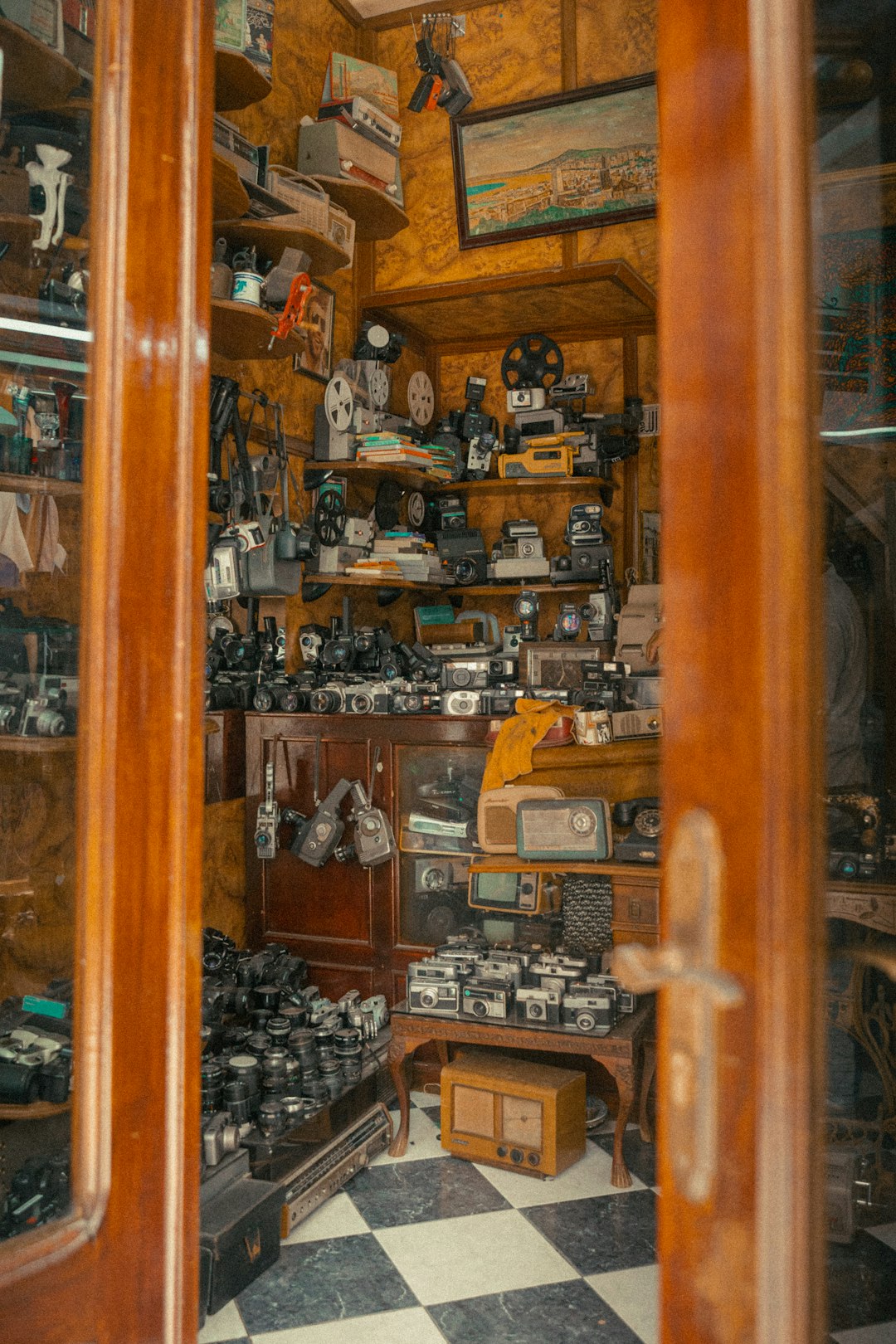
Perfume shops have a rich history that mirrors the evolution of fragrance itself. The term “parfumerie” originated in France, the birthplace of modern perfumery, where artisans crafted scents in small boutiques. Over centuries, these shops evolved from apothecaries selling scented oils and balms to sophisticated boutiques offering curated collections.
The Evolution of Perfume Shops
- Ancient times: Perfumes sold in markets and apothecaries.
- 17th-18th centuries: Parisian “parfumeries” became cultural hubs.
- 20th century: Department stores introduced fragrance counters.
- 21st century: Rise of niche boutiques and online retailers.
For a fascinating read on perfume history, visit our Perfume History and Evolution section.
🕵️♀️ Unveiling the Mystery: What Are Perfume Shops Called?
If you’re scratching your head wondering what to call that magical place where scents come alive, here’s the scoop.
1. The Classic Monikers: From “Parfumerie” to “Fragrance Boutique”
- Parfumerie: The traditional French term, still used by many luxury shops.
- Fragrance Boutique: Modern and chic, often used by upscale independent stores.
- Perfume Shop/Store: The everyday term, widely understood.
- Scent Bar: Trendy spots offering customization and sampling.
2. Beyond the Obvious: Department Store Counters and Specialty Stores
- Department Store Fragrance Counters: Think Macy’s or Nordstrom, where multiple brands coexist.
- Specialty Perfumeries: Smaller shops focusing on niche or artisanal brands.
- Online Perfumeries: Digital platforms like FragranceNet or the official Creed website.
Curious about the best places to shop? Our Fragrance Reviews cover top retailers and brands.
🛍️ A World of Scented Sanctuaries: Exploring Different Types of Perfume Retailers
Perfume shopping isn’t one-size-fits-all. Let’s break down the main types of perfume shops you’ll encounter.
3. Luxury Fragrance Boutiques: The Epitome of Elegance
These boutiques, like Creed’s flagship stores, offer a curated, immersive experience with expert consultants and exclusive lines.
| Aspect | Rating (1-10) |
|---|---|
| Design & Ambiance | 10 |
| Product Range | 9 |
| Customer Service | 10 |
| Exclusivity | 10 |
| Price Accessibility | 4 |
Why we love them: Personalized service, rare scents, and elegant surroundings.
Drawbacks: Prices can be steep, and locations limited.
👉 CHECK PRICE on:
4. Department Store Fragrance Counters: A Grand Scented Bazaar
These counters house multiple brands under one roof, perfect for sampling and comparing.
| Aspect | Rating (1-10) |
|---|---|
| Variety | 10 |
| Convenience | 9 |
| Customer Service | 7 |
| Price Range | 7 |
| Ambiance | 6 |
Pro tip: Visit during less busy hours for attentive service.
5. Niche Perfumeries: Discovering Unique Olfactory Art
Niche shops focus on indie brands like Le Labo or Byredo, offering unique, often handcrafted scents.
| Aspect | Rating (1-10) |
|---|---|
| Uniqueness | 10 |
| Expertise | 9 |
| Price | 6 |
| Availability | 5 |
Fun fact: Niche perfumes often use rare ingredients and limited batches.
6. Online Perfume Retailers: The Digital Scent Superhighway
Websites like FragranceNet, Sephora, and brand sites offer convenience and variety but lack the in-person sniff test.
| Aspect | Rating (1-10) |
|---|---|
| Convenience | 10 |
| Variety | 10 |
| Price | 8 |
| Sensory Experience | 3 |
Tip: Order samples or discovery sets before committing.
7. Duty-Free Shops: Your Gateway to Global Scents
Found in airports, these shops offer tax-free prices and exclusive travel editions.
| Aspect | Rating (1-10) |
|---|---|
| Price Advantage | 9 |
| Brand Variety | 7 |
| Convenience | 8 |
| Exclusivity | 6 |
8. Drugstores & Mass Market Retailers: Accessible Aromas for Everyone
Stores like Walgreens or Boots stock popular brands like Calvin Klein and Davidoff.
| Aspect | Rating (1-10) |
|---|---|
| Accessibility | 10 |
| Price | 9 |
| Variety | 6 |
| Expertise | 4 |
9. Direct-to-Consumer (DTC) Brands: Cutting Out the Middleman
Brands like Glossier and Maison Margiela sell directly online, offering fresh scents and transparent pricing.
10. Pop-Up Shops & Artisan Markets: Fleeting Fragrance Finds
These temporary shops offer unique, often local scents and a chance to meet perfumers.
💖 The Art of Scented Shopping: Why We Love Visiting Perfume Stores
There’s something magical about stepping into a perfume shop—the mingling aromas, the elegant bottles, the thrill of discovery. It’s an experience that online shopping can’t fully replicate.
- Sensory delight: Testing scents on skin, experiencing how they evolve.
- Personal connection: Engaging with knowledgeable staff who guide your choices.
- Exclusive access: Finding limited editions and samples.
Our team at Perfume Brands™ often shares stories of customers who found their signature scent after a single visit—proof that the right shop can change your fragrance game.
👃 Your Personal Scent Journey: Tips for Navigating Any Perfume Shop
Ready to shop like a pro? Here’s how to make the most of your visit:
- Do your homework: Read reviews on Fragrance Reviews to shortlist scents.
- Start light: Sample 2-3 perfumes per visit to avoid olfactory fatigue.
- Test on skin: Paper strips don’t tell the whole story.
- Ask questions: Don’t hesitate to seek expert advice.
- Take notes: Jot down names and impressions.
- Give it time: Let the scent settle for at least 30 minutes.
🎁 More Than Just Bottles: Services Offered by Modern Perfume Retailers
Today’s perfume shops offer more than just fragrance sales:
- Personalized consultations: Tailored scent recommendations.
- Custom blending: Create your own signature scent.
- Gift wrapping and packaging: Perfect for special occasions.
- Subscription services: Monthly scent deliveries.
- Workshops and events: Learn about perfumery and ingredients.
For example, Hove Parfumeur in New Orleans offers personal recommendations and international orders, blending tradition with modern service.
✨ The Niche Revolution: Why Indie Perfumes are Taking Over Our Hearts (and Wallets!)
Niche perfumeries are on the rise, fueled by consumers craving originality and craftsmanship. Brands like Le Labo, Diptyque, and Byredo emphasize artistry over mass appeal.
- Unique ingredients: Rare botanicals and innovative blends.
- Storytelling: Each scent tells a tale.
- Sustainability: Many niche brands prioritize eco-friendly practices.
This trend is reshaping what perfume shops offer, making the scent journey more personal and exciting.
💻 Digital vs. Physical: The Great Perfume Shopping Showdown
Online shopping offers convenience and variety but lacks the sensory immersion of physical stores. Meanwhile, brick-and-mortar shops provide expert guidance and immediate gratification.
| Feature | Online Shopping | Physical Stores |
|---|---|---|
| Convenience | ✅ | ❌ |
| Sensory Experience | ❌ | ✅ |
| Variety | ✅ | ✅ |
| Personalized Service | ❌ | ✅ |
| Price Comparison | ✅ | ❌ |
Our advice? Use both! Research and sample in-store, then buy online if you find better deals.
🚫 Busting Scent Myths: Common Misconceptions About Buying Perfume
Let’s clear the air on some perfume shopping myths:
- Myth 1: Perfumes smell the same on everyone – ❌ Scent interacts with your skin chemistry.
- Myth 2: Expensive means better – ❌ Price doesn’t always equal quality or suitability.
- Myth 3: You must buy full bottles immediately – ❌ Samples and decants are your friends.
- Myth 4: Online reviews are always reliable – ❌ Personal preference varies widely.
Understanding these helps you shop smarter and enjoy your fragrance journey.
🌍 Iconic Olfactory Destinations: Our Favorite Perfume Shops Around the Globe
If you’re a fragrance fanatic, these shops are bucket-list worthy:
- Creed Boutique, Paris: The home of classics like Absolu Aventus.
- Hove Parfumeur, New Orleans: The oldest perfume manufacturer in the US, blending history and hospitality.
- Le Labo, New York: Known for bespoke scents and minimalist design.
- Penhaligon’s, London: Quintessentially British with royal warrants.
- Diptyque, Paris: Famous for candles and unique perfumes.
Each offers a unique shopping experience steeped in culture and scent mastery.
🔮 The Future of Fragrance Retail: What’s Brewing in the World of Scent?
The perfume industry is evolving fast:
- Augmented Reality (AR): Try scents virtually before buying.
- Sustainability: Eco-friendly packaging and ethical sourcing.
- Customization: AI-driven scent creation tailored to your preferences.
- Subscription models: Monthly scent discovery boxes.
- Hybrid stores: Combining online ease with in-store experience.
Stay tuned as the scent world reinvents itself, making perfume shopping more exciting than ever!
If you’re ready to explore more about perfume shops and brands, don’t miss our in-depth article on What are perfume brands called?. Happy sniffing! 🌸
🎉 Conclusion
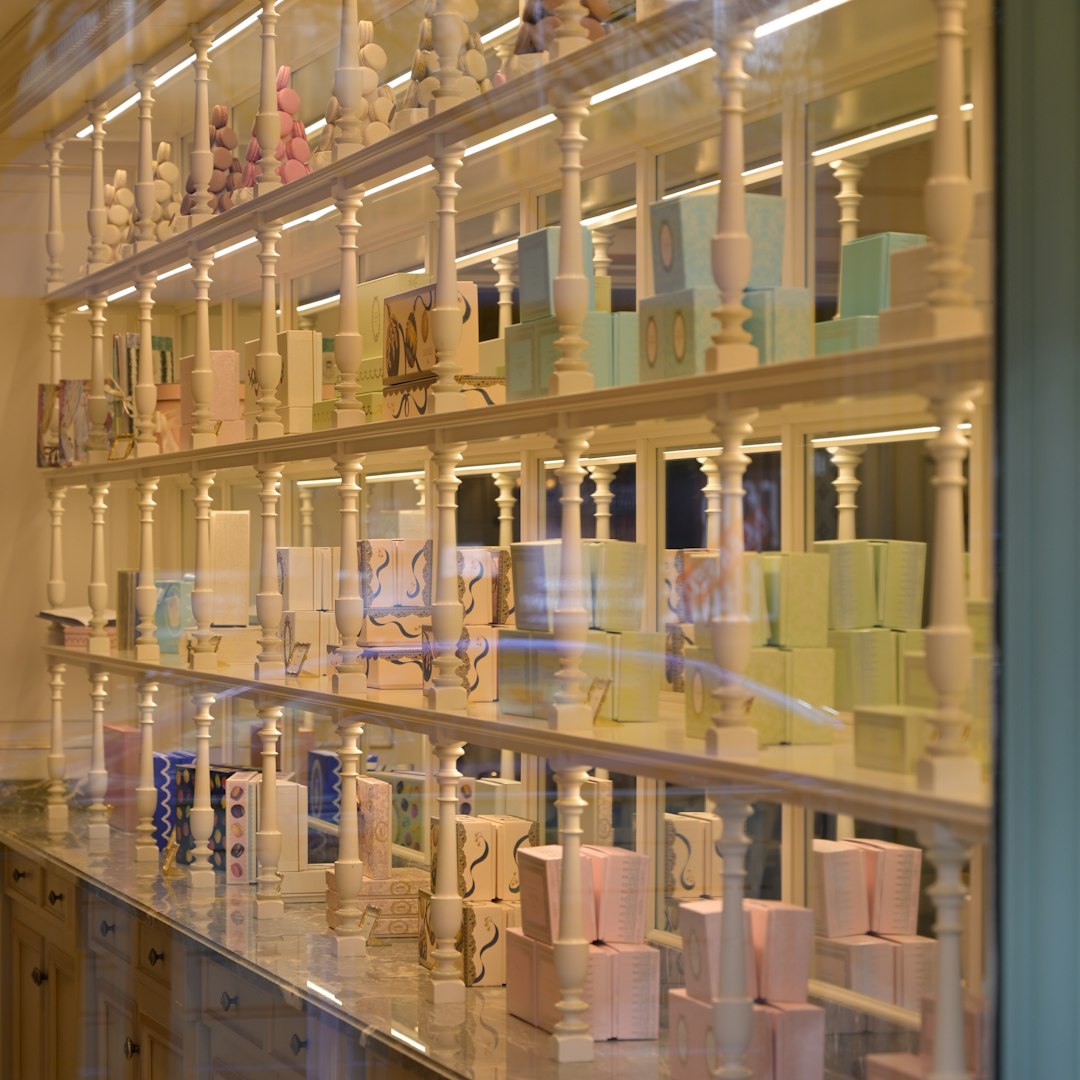
So, what are perfume shops called? As we’ve uncovered, the answer is delightfully diverse—parfumeries, fragrance boutiques, scent bars, and more. Each type of shop offers a unique experience, from the luxurious ambiance of a Creed boutique to the bustling counters of department stores, and the convenience of online retailers. Whether you’re hunting for a signature scent or exploring niche artisanal perfumes, knowing the landscape helps you shop smarter and enjoy the journey.
We also busted myths, explored the history, and peeked into the future of fragrance retail—showing that perfume shops are not just stores but sensory playgrounds where stories and scents intertwine.
If you’re craving that perfect scent, our confident recommendation is to embrace both worlds: visit physical stores for the immersive experience and expert advice, then leverage online shops for variety and convenience. And don’t forget to explore niche perfumeries—they’re the hidden gems of the fragrance world.
Ready to embark on your scented adventure? Your nose will thank you! 🌹
🔗 Recommended Links
👉 Shop Featured Perfume Brands:
- Creed: Amazon | Creed Official Website
- Le Labo: Amazon | Le Labo Official Website
- Byredo: Amazon | Byredo Official Website
- Diptyque: Amazon | Diptyque Official Website
- Maison Margiela: Amazon | Maison Margiela Official Website
Recommended Books on Perfume:
- Perfumes: The A-Z Guide by Luca Turin & Tania Sanchez: Amazon
- The Secret of Scent by Luca Turin: Amazon
- Fragrant: The Secret Life of Scent by Mandy Aftel: Amazon
❓ FAQ
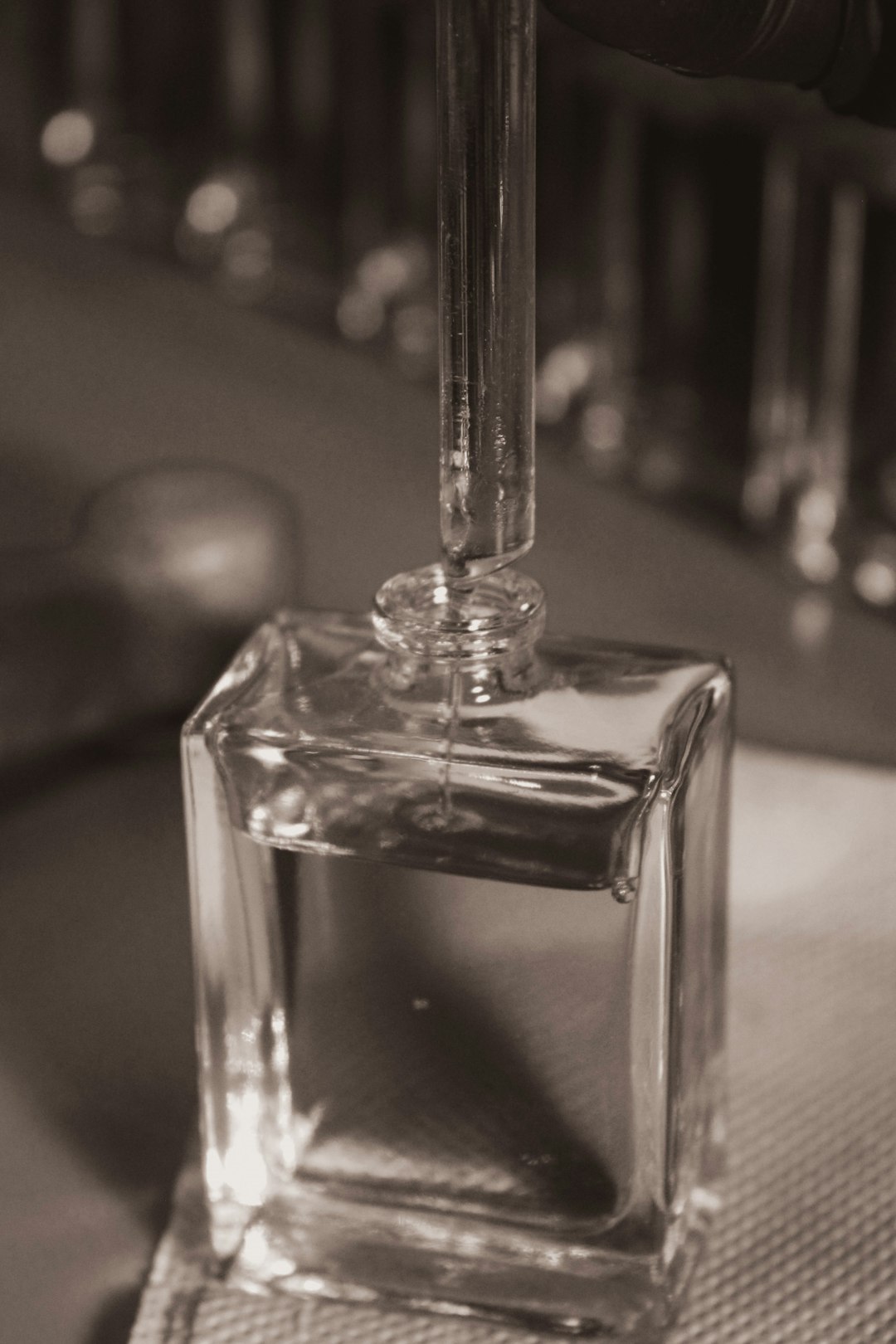
What is the difference between a perfumery and a fragrance boutique?
A perfumery traditionally refers to a shop specializing exclusively in perfumes, often with a long heritage and a focus on classic or artisanal scents. The term has French origins and is synonymous with elegance and expertise. A fragrance boutique, on the other hand, is a more modern term that often implies a curated selection of perfumes, including niche and luxury brands, presented in a stylish, boutique setting. Both offer expert advice, but boutiques may emphasize trendier or indie brands alongside classics.
How do I find the best perfume shop near me?
Start by searching online for “perfume shops near me” or “fragrance boutiques in [your city].” Use Google Maps and read customer reviews on platforms like Yelp or Trustpilot. Visiting department stores with fragrance counters (e.g., Macy’s, Nordstrom) is a reliable option. For niche or luxury experiences, check brand websites like Creed for store locators. Don’t hesitate to call ahead to confirm availability and services.
Read more about “Top 30 Perfume Brands for Men That Define 2025’s Scent Scene 👃”
What are some popular perfume store chains around the world?
Popular chains include:
- Sephora: Global beauty retailer with extensive fragrance sections.
- Douglas: Leading European chain specializing in perfumes and cosmetics.
- The Perfume Shop: UK-based chain with a broad range of brands.
- Ulta Beauty: US chain offering both mass-market and prestige fragrances.
These chains balance variety, accessibility, and often have loyalty programs.
Can I buy niche perfume brands at a traditional perfume shop?
It depends. Larger department stores and specialty boutiques increasingly stock niche brands like Le Labo, Byredo, and Diptyque due to growing consumer demand. However, some niche brands prefer exclusive boutiques or their own stores to maintain brand identity and personalized service. For the widest selection, niche perfumeries or official brand websites are your best bet.
How do duty-free shops differ from regular perfume stores?
Duty-free shops, typically found in airports, offer perfumes without local taxes, often resulting in lower prices. They also carry exclusive travel editions and limited releases. However, their selection may be limited compared to specialty boutiques, and the shopping experience is usually more transactional.
